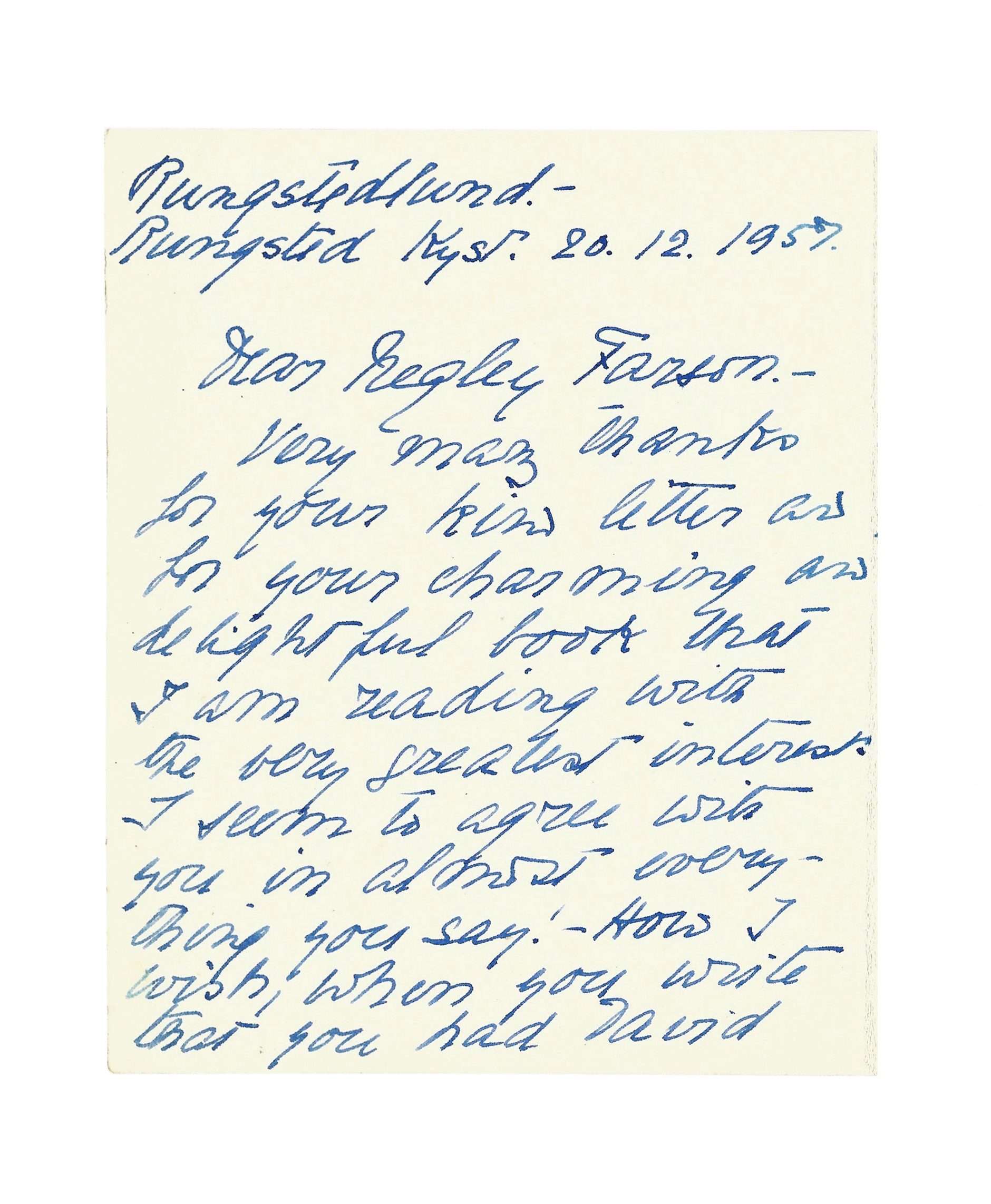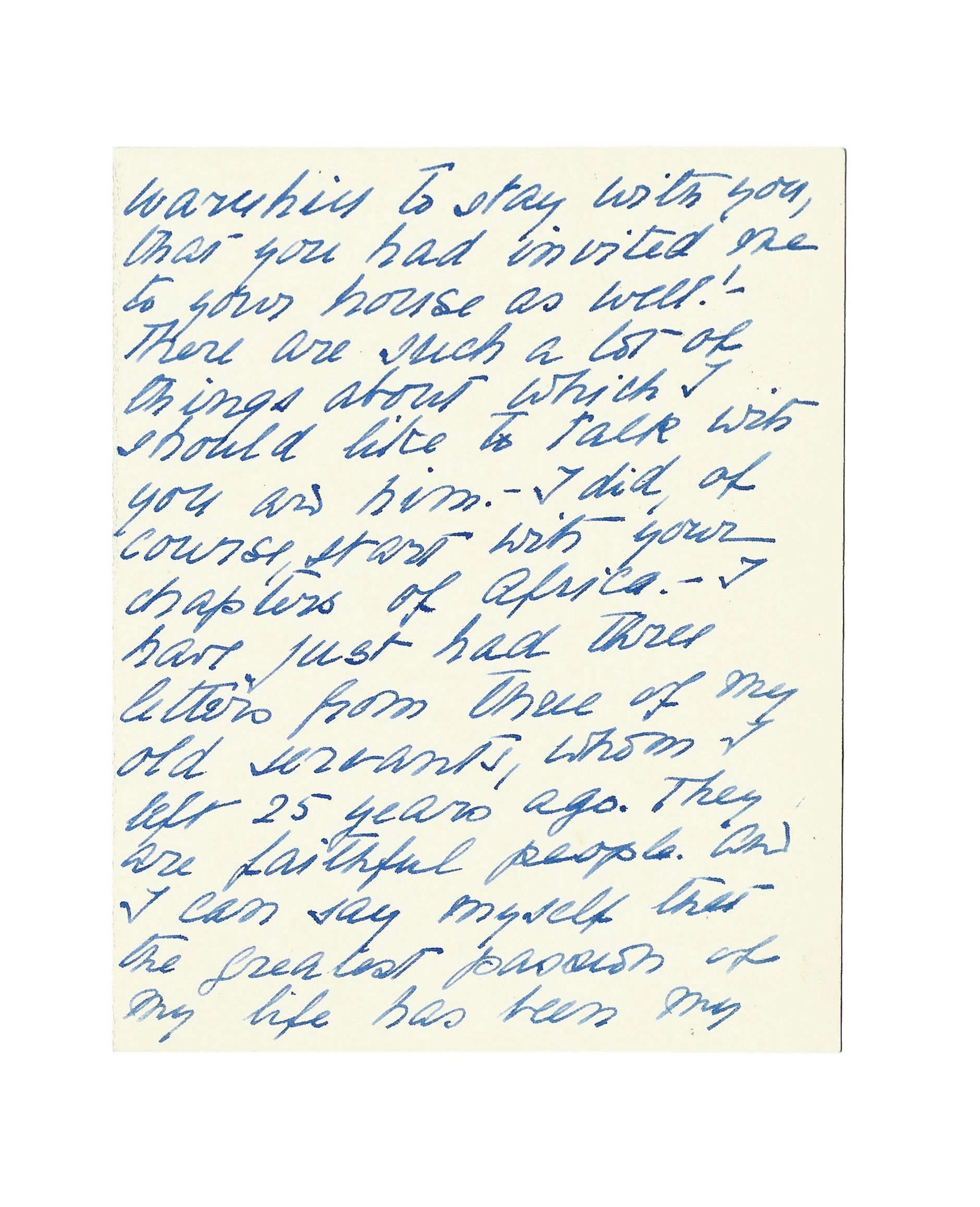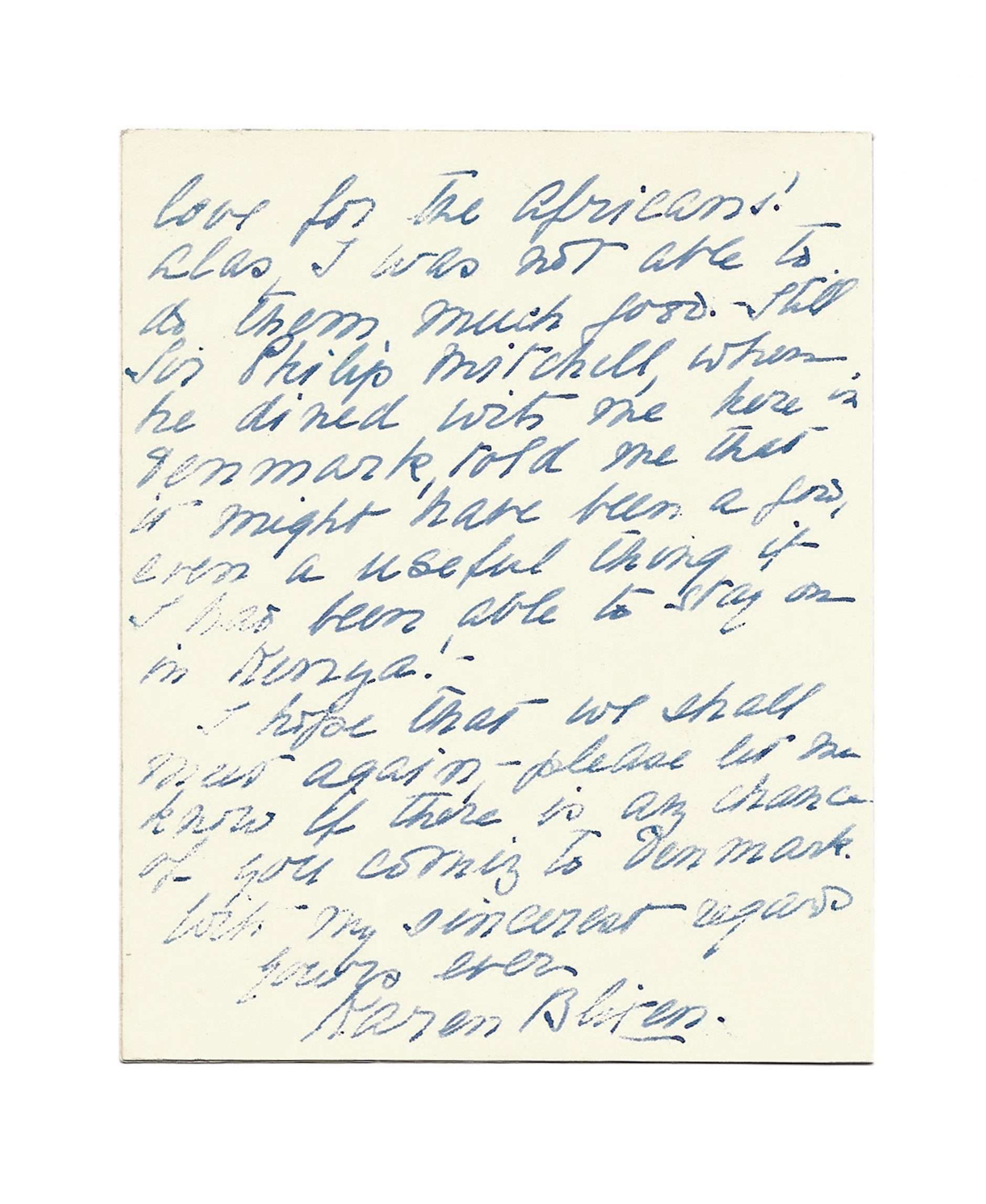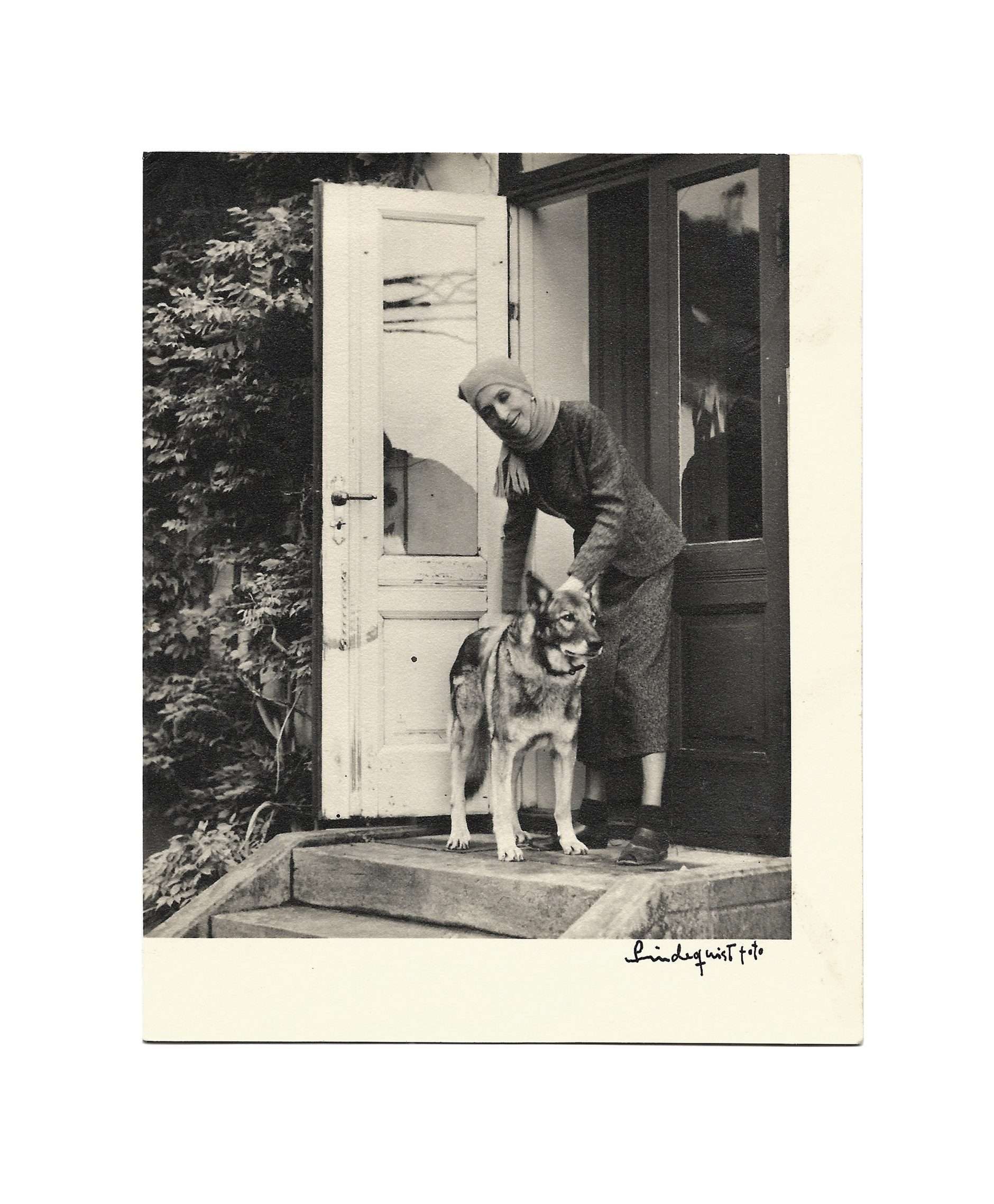BLIXEN, Karen (1885-1962)
Autograph letter signed « Karen Blixen » to Negley Farson
Rungstedlund, Rungsted Kyst, 20.12.1957, 3 pp. in-8°
« The greatest passion of my life has been my love for the Africans! »
Fact sheet
BLIXEN, Karen (1885-1962)
Autograph letter signed « Karen Blixen » to american writer and adventurer Negley Farson
Rungstedlund, Rungsted Kyst, 20.12.1957, 3 pp. in-8° on baryta paper, in english
On first page :
Original film print (signed by photographer Lindequist) showing Karen Blixen and her dog at the doorstep of Rungstedlund, her Danish residence
Touching letter from Karen Blixen, looking back with nostalgia on her past in Africa
“Dear Negley Farson.-
Very many thanks for your kind letter and for your charming and delightful book [Last Chance in Africa] that I am reading with the very greatest interest. I seem to agree with you in almost everything you say! – How I wish, when you write that you had David Waruhiu to stay with you, that you had invited me with your house as well!- There are such a lot of things about which I should like to talk with you and him.- I did, of course, start with your chapters of Africa.- I have just had three letters from three of my old servants, whom I left 25 years ago. They are faithful people. And I can say myself that the greatest passion of my life has been my love for the Africans! Alas, I was not able to do them much good. Still Sir Philip Mitchell [Governor of Kenya from 1944 until 1952], when he dined with me here in Denmark, told me that it might have been a good, even a useful thing if I had been able to stay on in Kenya!-
I hope that we shall meet again,- please let me know if there is any chance of your coming to Denmark.
With my sincerest regards.
Yours ever
Karen Blixen”
Of Danish origin, Karen Blixen moved with her husband Bror von Blixen-Finecke to British East Africa to create a coffee plantation in 1914. They divorced in 1925. She described her seventeen years in Kenya in her book Out of Africa, published in 1937.
The writer draws touching portraits of her servants in his work. They remained faithful to her and she will maintain epistolary links with them, as evidenced by this letter. She eventually returned to Denmark in 1931 to join the family estate in Rungstedlund.
Ruined, sentimentally desperate and having to leave her farm and Africa, Karen considers her African farm experience a total failure. To fill the void in her life, she began to write in English, at the threshold of her fifties. “No one paid more for their entry into literature,” she would later say.
Karen Blixen’s letters refering to Africa are very uncommon







